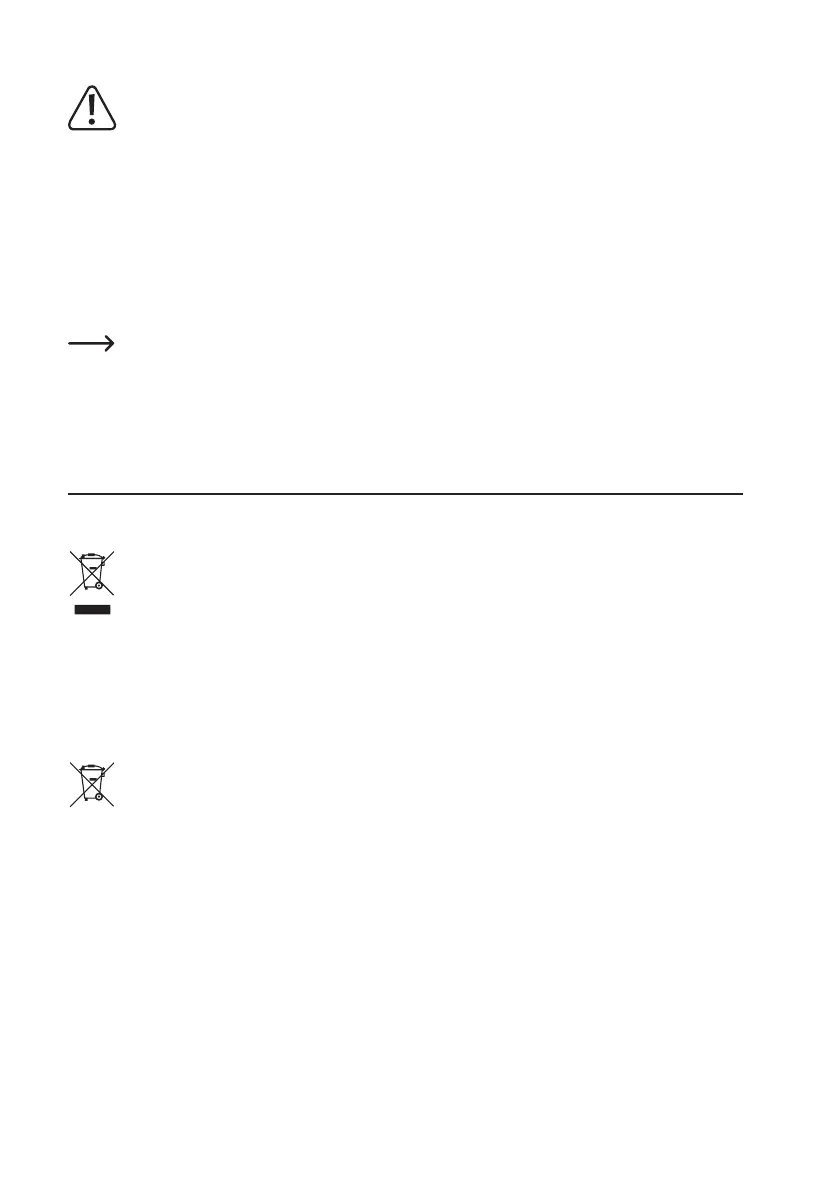61
Never operate the meter when it is open. !DANGER TO LIFE!
Donotleaveatbatteriesinthemeter.Evenbatteriesprotectedagainstleakingcancorrodeand
thus release chemicals which may be detrimental to your health or destroy the device.
Do not leave batteries lying around carelessly. They could be swallowed by children or pets. If swal-
lowed, consult a doctor immediately.
Remove the battery if the device is not used for extended periods of time to prevent leaking.
Leaking or damaged batteries may cause alkali burns if they come in contact with the skin. There-
fore, use suitable protective gloves.
Makesurethatthebatteriesarenotshort-circuited.Donotthrowbatteriesintothere.
Batteries must not be recharged or dismantled. Danger of explosion.
You can order suitable alkaline batteries stating the following item no:
Item no. 652509 (please order 1x).
Only use alkaline batteries, as they are powerful and have a long service life.
12. Disposal
a) General
The product does not belong in the household waste.
At the end of its service life, dispose of the product according to the relevant statutory regulations; e.g.,
returnittothecorrespondingcollectionofce.
Remove any inserted batteries or rechargeable batteries and dispose of them separately from the product.
b) Disposalofatbatteries
You as the end user are required by law (Battery Ordinance) to return all used batteries/rechargeable batteries. Dis-
posing of them in the household waste is prohibited!
Rechargeable batteries containing harmful substances are marked with the following symbol, which points
out that they are not allowed to be disposed of in the domestic refuse. The descriptions for the respective
heavy metals are: Cd = cadmium, Hg = mercury, Pb = lead. You may return used rechargeable batteries
freeofchargeattheofcialcollectionpointsofyourcommunity,inourstores,orwhereverrechargeable
batteries are sold.
Youthusfullthelegalrequirementsandmakeyourcontributiontoprotectingtheenvironment!
